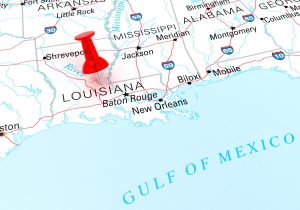 In a Louisiana personal injury legal case, you may hear many technical words and phrases tossed around. You might hear things like “venue,” “personal jurisdiction,” “subject matter jurisdiction” or “territorial jurisdiction.” These things can be extremely important to your case because if you sue in the wrong court where jurisdiction isn’t present your action may get dismissed. Even if you are allowed to re-file later, it will cost you valuable time and may cost you your case entirely if the statute of limitations has run out. That’s why it is so important to get it right the first time. To that end, you should be sure that you have legal representation from a knowledgeable New Orleans injury attorney, to avoid these legal traps that can potentially stymie otherwise deserving plaintiffs.
In a Louisiana personal injury legal case, you may hear many technical words and phrases tossed around. You might hear things like “venue,” “personal jurisdiction,” “subject matter jurisdiction” or “territorial jurisdiction.” These things can be extremely important to your case because if you sue in the wrong court where jurisdiction isn’t present your action may get dismissed. Even if you are allowed to re-file later, it will cost you valuable time and may cost you your case entirely if the statute of limitations has run out. That’s why it is so important to get it right the first time. To that end, you should be sure that you have legal representation from a knowledgeable New Orleans injury attorney, to avoid these legal traps that can potentially stymie otherwise deserving plaintiffs.
One injury case that included extensive arguments about jurisdiction was the auto accident case of C.T. C.T. was injured in New Orleans in the fall of 2011. One year minus one day later, she sued in parish court in Jefferson Parish to seek compensation for her injuries. The injured woman sued the other driver and his auto insurer. The defense tried to attack the lawsuit using a procedural approach. They argued that because the accident happened in Orleans Parish and the defendant driver lived in Orleans Parish, the court in Jefferson Parish didn’t have jurisdiction to try the case.
The court agreed and dismissed the lawsuit “without prejudice.” “Without prejudice” means that the law will permit you to re-file your case later, as long as no other legal restrictions (such as the expiration of the statutory limitations period) bar it. The case then went through a series of procedural battles, with motions for new trial, motions to dismiss and so forth. Ultimately, the dismissal remained in place due to a lack of jurisdiction. Specifically, the judge ruled that the court lacked subject matter jurisdiction and personal jurisdiction over the defendant driver.
The appeals court threw out that ruling, which meant that C.T.’s case was revived. The legal concept of jurisdiction means “the legal power and authority of a court to hear and decide an action and grant” the plaintiff an award of damages or some other type of relief. In other words, it means the legal authority to hold a trial and to issue a binding judgment upon a party or parties. Louisiana law limits the subjects that parish courts can try, but a lawsuit for “damages as a result of an automobile accident is not on that list of exclusions.” What that meant was that the parish court in Jefferson Parish did have subject matter jurisdiction over C.T.’s lawsuit.
The court’s ruling also made it clear that the parish court in Jefferson Parish had personal jurisdiction over the defendant driver. That driver’s arguments regarding how the court lacked personal jurisdiction because it was in Jefferson Parish and he lived in Orleans Parish were incorrect. While a party’s living in a different parish might possibly impact a court’s decision regarding the legal issue of venue, it does not have any impact on a Louisiana court’s personal jurisdiction over a Louisiana resident, which the court clearly had.
There are so many ways that an injury case can go wrong, even if you have strong facts and factual evidence in your favor. With so much at stake, make sure you give yourself the best chance possible for a positive result. Contact the Cardone Law Firm, where our experienced Louisiana injury lawyers have spent many years providing our clients with the quality representation they need.
For your confidential consultation contact us online or phone Cardone at 504-522-3333.
More Blog Posts:
Drivers Distracted by Their Cell Phones Continue to Take a Terrible Toll on Louisiana’s Roads, Louisiana Injury Lawyers Blog, Sept. 5, 2018
Uninsured Motorist Claims in Louisiana and the Top Rules You Need to Know, Louisiana Injury Lawyers Blog, Aug. 13, 2018
 Louisiana Injury Lawyers Blog
Louisiana Injury Lawyers Blog

